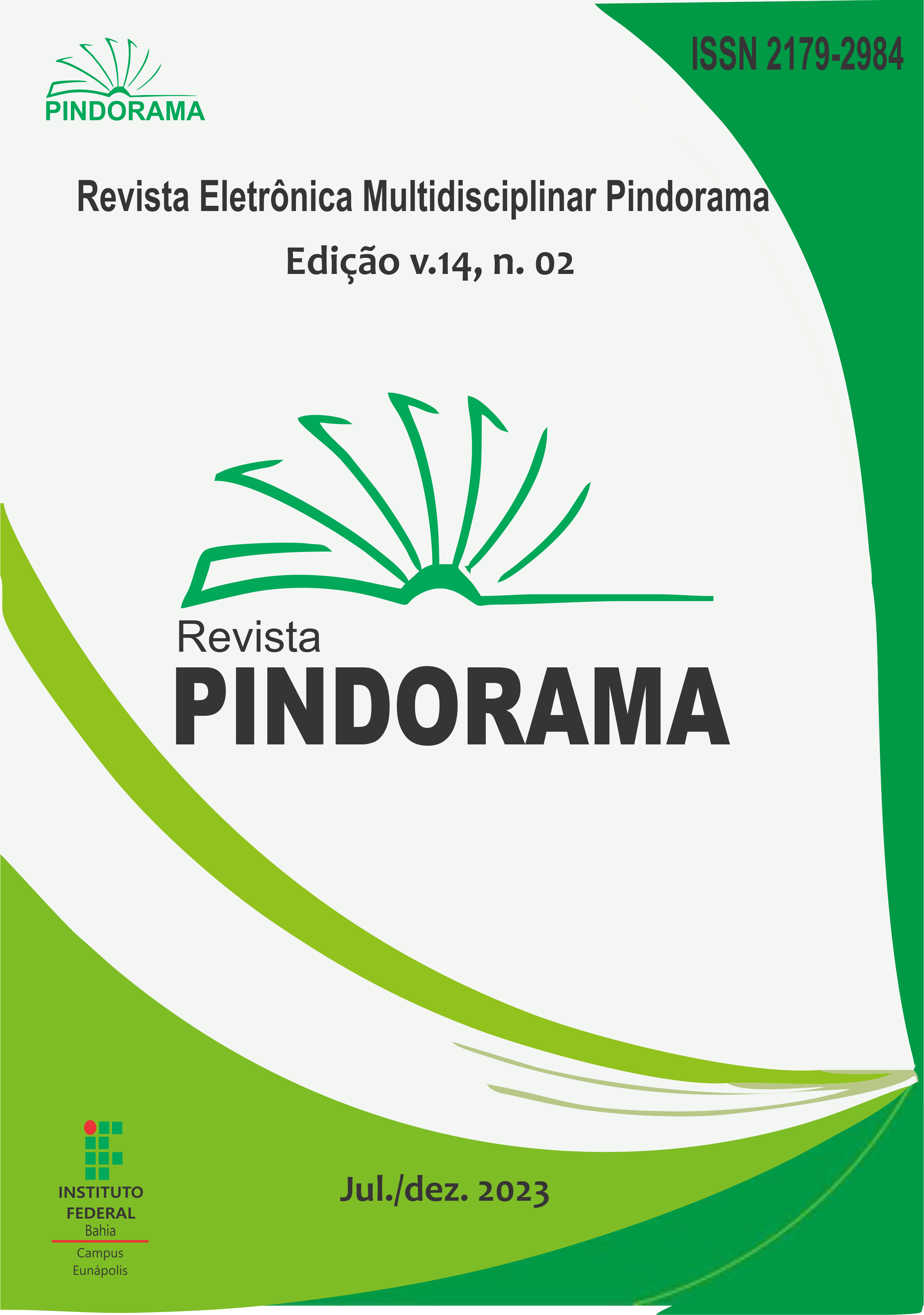The (De)Centralization of an Afrocentred Authoress
DOI:
https://doi.org/10.55847/pindorama.v14i2.1014Keywords:
Afrocentricity. Decentralization. Quarto de despejo: diário de uma favelada.Abstract
This paper presents a discussion about the work Quarto de despejo: diário de uma favelada (1960), by Carolina Maria de Jesus. The objective of the research is the analysis of this diary in the field of Afrocentricity, because Carolina de Jesus has an Afrocentric view of her own life by demonstrating resistance to the processes of annihilation of her human person, for being black, poor and a slum dweller. In addition, she positions herself as Afrocentric by asserting herself as a writer and by her political and critical positions. If in this paradigm Carolina de Jesus is centered, that is, she is committed to her own interests and to her ancestors' history of struggle and resistance, in the course of Brazilian literary historiography and criticism the writer is a decentered narrator, since she is not part of the dominant fields of society. The history of exclusion and exploitation of black people and the structural racism that has been consolidated in contemporary societies are the basis for understanding the decentralization and the importance of the writer's Afrocentricity for the history of Brazil and for Brazilian literature. The methodology used was bibliographic, mainly based on the theoretical assumptions of Molefi Kete Asante (2009) and other researchers of Afrocentric studies. And, also, studies in the fields of culture, narrative, and racism.
References
ALMEIDA, Silvio Luiz de. O que é racismo estrutural? Belo. Horizonte: Letramento, 2018.
ASANTE, Molefi Kete. Afrocentricidade: Notas sobre uma posição disciplinar. In: Afrocentricidade: uma abordagem epistemológica inovadora. NASCIMENTO, Elisa Larkin (org.). São Paulo: Selo Negro, 2009.
FERNANDES, Alexandre de Oliveira; REIS, Maurício de Novais. Afrocentricidade: Identidade e centralidade africana. Odeere: Revista do Programa de Pós-Graduação em Relações Étnicas e Contemporaneidade, Jequié, v.3, n. 6, p.102-119, jul./dez., 2018.
FINCH III, Charles S.; NASCIMENTO, Elisa Larkin. Abordagem afrocentrada, história e evolução. In: Afrocentricidade: uma abordagem epistemológica inovadora. NASCIMENTO, Elisa Larkin (org.). São Paulo: Selo Negro, 2009.
GINZBURG, Jaime. O narrador na literatura brasileira contemporânea. Tintas, Milão, n. 2, p. 199-221, 2012.
______. Literatura, violência e melancolia. Grupos de estudos de novas narrativas/GENN, 2013. Vídeo. Disponível: https://www.youtube.com/watch?v=NPBtZv_9ywI. Acesso em: 20 jan. 2022.
JESUS, Carolina Maria de. Quarto de despejo: diário de uma favelada. São Paulo: Ática, 2014.
LARAIA, Roque de Barros. Cultura: um conceito antropológico. Rio de Janeiro: Jorge Zahar Editora, 2001.
MAZAMA, Ama. Afrocentricidade como um novo paradigma. In: Afrocentricidade: uma abordagem epistemológica inovadora. NASCIMENTO, Elisa Larkin (org.). São Paulo: Selo Negro, 2009.
NASCIMENTO, Elisa Larkin. O olhar afrocentrado: introdução a uma abordagem polêmica. In: Afrocentricidade: uma abordagem epistemológica inovadora. ______. São Paulo: Selo Negro, 2009.
SILVA, Luiz. Literatura negro-brasileira. São Paulo: Selo Negro, 2010.
Downloads
Published
How to Cite
Issue
Section
License
Copyright (c) 2024 Revista PINDORAMA

This work is licensed under a Creative Commons Attribution 4.0 International License.




